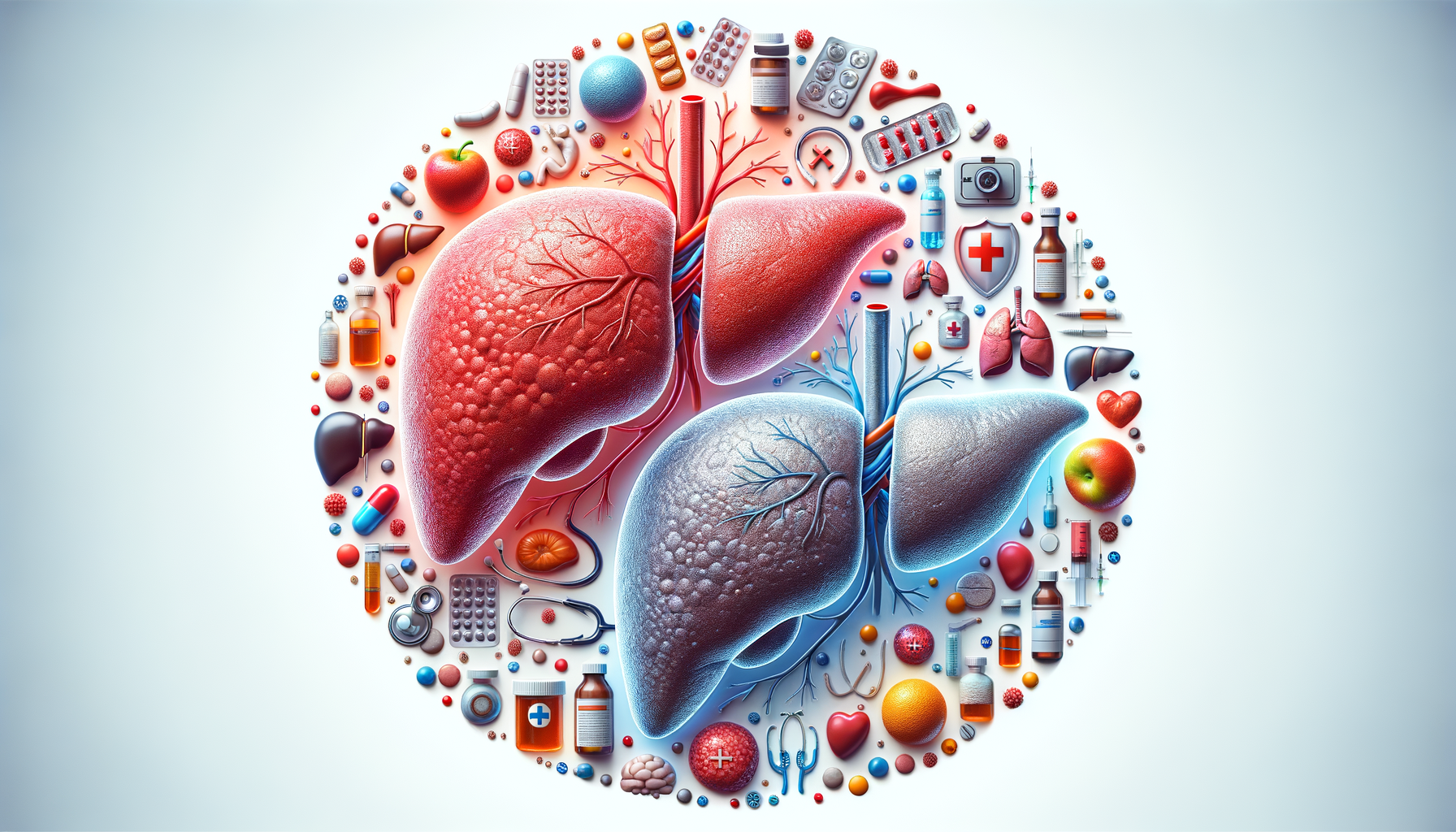Understanding Fatty Liver Disease
Fatty liver disease, also known as hepatic steatosis, is a condition characterized by the accumulation of fat in the liver cells. This condition can be categorized into two types: alcoholic fatty liver disease, which is triggered by excessive alcohol consumption, and non-alcoholic fatty liver disease (NAFLD), which occurs in individuals who consume little to no alcohol. The latter is more prevalent and affects a significant portion of the global population.
The liver is a vital organ responsible for numerous functions, including detoxification, protein synthesis, and the production of biochemicals necessary for digestion. When excess fat builds up in the liver, it can lead to inflammation, scarring, and eventually liver failure if left untreated. Understanding the different types of fatty liver disease and their causes is crucial for effective management and treatment.
NAFLD is often associated with metabolic syndrome, which includes conditions such as obesity, type 2 diabetes, and high cholesterol. Lifestyle factors, including diet and physical activity, play a significant role in the development of this condition. Recognizing the risk factors and early symptoms can help in the timely management of fatty liver disease.
Symptoms and Diagnosis of Fatty Liver Disease
Fatty liver disease is often referred to as a “silent” disease because it can progress without noticeable symptoms. However, there are some signs that may indicate the presence of this condition. These include persistent fatigue, abdominal discomfort, and unexplained weight loss. Some individuals may also experience bloating or a feeling of fullness in the upper right side of the abdomen.
Diagnosing fatty liver disease typically involves a combination of medical history evaluation, physical examination, and diagnostic tests. Blood tests can help assess liver function and detect elevated liver enzymes, which may indicate liver damage. Imaging tests such as ultrasound, CT scans, or MRI can provide a clearer picture of fat accumulation in the liver. In some cases, a liver biopsy may be necessary to confirm the diagnosis and determine the extent of liver damage.
Early detection is crucial for preventing the progression of fatty liver disease to more severe conditions such as liver cirrhosis or liver cancer. Regular check-ups and monitoring of liver health are especially important for individuals with risk factors such as obesity, diabetes, and high cholesterol.
Causes and Risk Factors
The development of fatty liver disease is influenced by a variety of factors. In the case of alcoholic fatty liver disease, excessive alcohol consumption is the primary cause. Alcohol is metabolized in the liver, and excessive intake can lead to fat accumulation and liver damage.
Non-alcoholic fatty liver disease (NAFLD) is often associated with metabolic syndrome and its components, including obesity, insulin resistance, and dyslipidemia. Genetics also play a role, as certain genetic variations can increase the risk of developing NAFLD. Additionally, rapid weight loss, malnutrition, and certain medications can contribute to the development of fatty liver disease.
Understanding these risk factors is essential for prevention and management. Lifestyle modifications, such as adopting a balanced diet, maintaining a healthy weight, and engaging in regular physical activity, can significantly reduce the risk of developing fatty liver disease. For individuals with existing conditions like diabetes or high cholesterol, managing these conditions effectively is crucial for liver health.
Treatment and Management Strategies
The management of fatty liver disease primarily focuses on addressing the underlying causes and preventing further liver damage. For individuals with alcoholic fatty liver disease, abstinence from alcohol is essential. For those with non-alcoholic fatty liver disease, lifestyle changes are the cornerstone of treatment.
Dietary modifications play a crucial role in managing fatty liver disease. A diet rich in fruits, vegetables, whole grains, and lean proteins can help reduce liver fat and improve overall health. Limiting the intake of saturated fats, sugars, and processed foods is also recommended. Regular physical activity, such as aerobic exercises and strength training, can aid in weight loss and improve insulin sensitivity.
In some cases, medications may be prescribed to manage associated conditions like diabetes or high cholesterol. However, there is currently no specific medication approved for the treatment of fatty liver disease. Research is ongoing to identify potential therapeutic options that can target liver fat accumulation and inflammation.
Regular monitoring of liver function and overall health is essential for individuals with fatty liver disease. Working closely with healthcare providers can help in developing a personalized management plan and preventing complications.
Conclusion: Taking Action for Liver Health
Fatty liver disease is a growing concern, affecting millions of individuals worldwide. Recognizing the symptoms and understanding the risk factors are crucial steps in managing this condition effectively. With early detection and appropriate lifestyle modifications, individuals can significantly improve their liver health and prevent the progression of the disease.
Taking proactive steps such as maintaining a healthy weight, adopting a balanced diet, and engaging in regular physical activity can make a significant difference. For individuals with existing health conditions, managing these effectively is key to preventing liver-related complications.
In conclusion, staying informed and taking action are essential for liver health. By prioritizing healthy lifestyle choices and seeking regular medical advice, individuals can protect their liver and overall well-being. Remember, your liver plays a vital role in your body’s functioning, and taking care of it is an investment in your long-term health.








